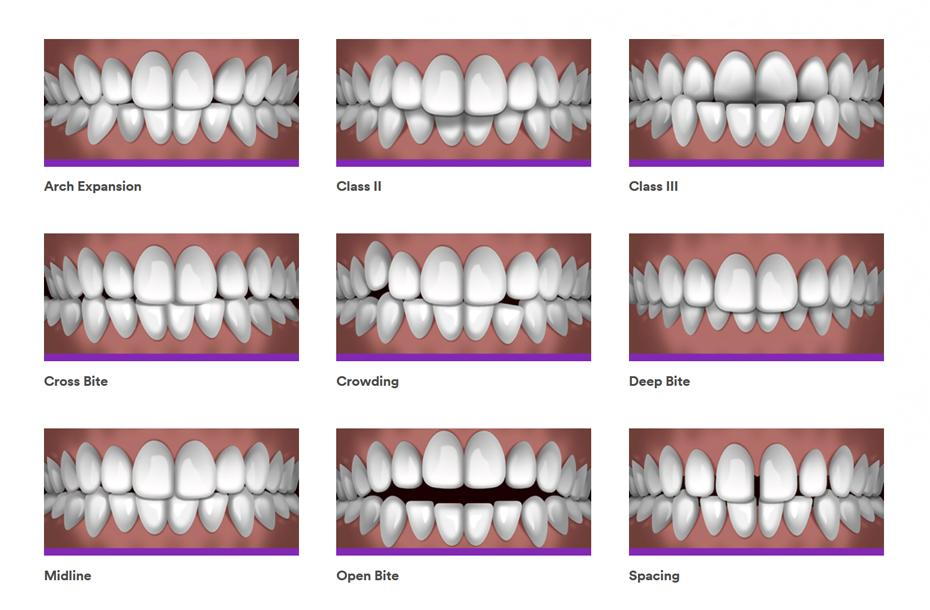Little Known Facts About Causey Orthodontics.
Wiki Article
Our Causey Orthodontics Diaries
Table of ContentsCausey Orthodontics Fundamentals ExplainedRumored Buzz on Causey OrthodonticsCausey Orthodontics Fundamentals ExplainedNot known Facts About Causey OrthodonticsCausey Orthodontics - QuestionsEverything about Causey OrthodonticsCausey Orthodontics Things To Know Before You Get This
What is the difference in between a dental expert and an orthodontist? To answer a concern that is frequently asked, both dental experts and orthodontists help patients obtain far better oral health and wellness, albeit in various ways. It assists to bear in mind that dental care is a rather wide scientific research with different medical specializations. All dentists, including orthodontists, deal with the teeth, gums, jaw and nerves.
You can assume of both physicians who treat gum and teeth problems. The main distinction is that coming to be an orthodontist needs a certain specialized in treating the misalignment of the teeth and jaw.
Some Known Factual Statements About Causey Orthodontics
An orthodontist is a dental expert that has undergone training to concentrate on the medical diagnosis, prevention and therapy of abnormalities in the jaw and teeth. Their training consists of remedying these existing conditions. They can also identify potential issues in teeth positioning that may create when problems are left neglected. Orthodontists can aid people of all ages.
This consists of all the necessary education and learning to become a basic dentist. According to the American Student Dental Organization (ASDA), it means you will certainly require to have either a Medical professional of Medicine in Dentistry (DMD) or a Physician of Oral Surgery (DDS). In other words, orthodontists require to finish oral college and after that acquire an orthodontics specialized education.
Some orthodontists likewise get their masters in craniofacial biology. These programs concentrate on 2 details areas or disciplines: Dentofacial Orthopedics: This study focuses on directing teeth and jaw advancement.
About Causey Orthodontics

 These include device such as dental braces, retainers and Invisalign. What does an orthodontist do, and what do they focus on? The total objective of an orthodontist is to boost an individual's bite. Not everyone is birthed with straight teeth, and an orthodontist will certainly ensure that clients obtain evenly spaced straight teeth.
These include device such as dental braces, retainers and Invisalign. What does an orthodontist do, and what do they focus on? The total objective of an orthodontist is to boost an individual's bite. Not everyone is birthed with straight teeth, and an orthodontist will certainly ensure that clients obtain evenly spaced straight teeth.
A Biased View of Causey Orthodontics
The American Association of Orthodontists recommends your very first check up by age 7. You'll need to see your orthodontist if you have an imbalance in your teeth, additionally called malocclusion. If you discover irregular bite patterns, a slightly askew jaw, or when your teeth are chock-full, you will likely require orthodontic therapy.In addition, we provide flexible treatment timetables, versatile repayment options and a fun, pleasurable experience.
An orthodontist is a dental professional trained to diagnose, avoid, and deal with teeth and jaw abnormalities. They correct existing problems and are trained to identify issues that may develop in the future. Orthodontists deal with people of every ages, from children to grownups. People typically associate an excellent smile with healthiness.
6 Simple Techniques For Causey Orthodontics
Malocclusion, or misaligned teeth, can lead to dental concerns, consisting of tooth decay, gum tissue condition, and challenging or uncomfortable eating. Yet not everyone is birthed with straight teeth. If you have a poor bite or big areas between your teeth, you might intend to seek advice from a dental expert focusing on orthodontic care.(Picture Debt: DigitalVision/Getty Images) Orthodontists make use of fixed and removable dental devices, like dental braces, retainers, and bands, to transform the position of teeth in your mouth. Orthodontic therapy is for oral irregularities, including: Misaligned teethBite troubles, like an overbite or an underbiteCrowded teeth or teeth that are as well far apartJaw misalignmentThe goal of orthodontic treatment is to improve your bite.
Getting My Causey Orthodontics To Work

All orthodontists are dentists, but not all dentists are orthodontists. Orthodontic residency programs provide intensive, focused instruction for dental specialists. They focus on two locations: Just how to properly and securely relocate teeth Exactly how to correctly assist advancement in the teeth, jaw, and faceOnce an orthodontist has finished training, they have the choice to become board accredited.
Malocclusion leads to tooth overcrowding, a twisted jaw, or irregular bite patterns. Malocclusion is generally treated with: Your orthodontist connects metal, ceramic, or plastic square bonds to your teeth.
Getting My Causey Orthodontics To Work
If you have only small malocclusion, you might have the ability to make use of clear braces, called aligners, rather of standard braces. Some people require a headwear to help relocate teeth right into line with stress from outside the mouth. After braces or aligners, you'll require to put on a retainer. A retainer is a personalized tool that maintains your teeth in location.Report this wiki page